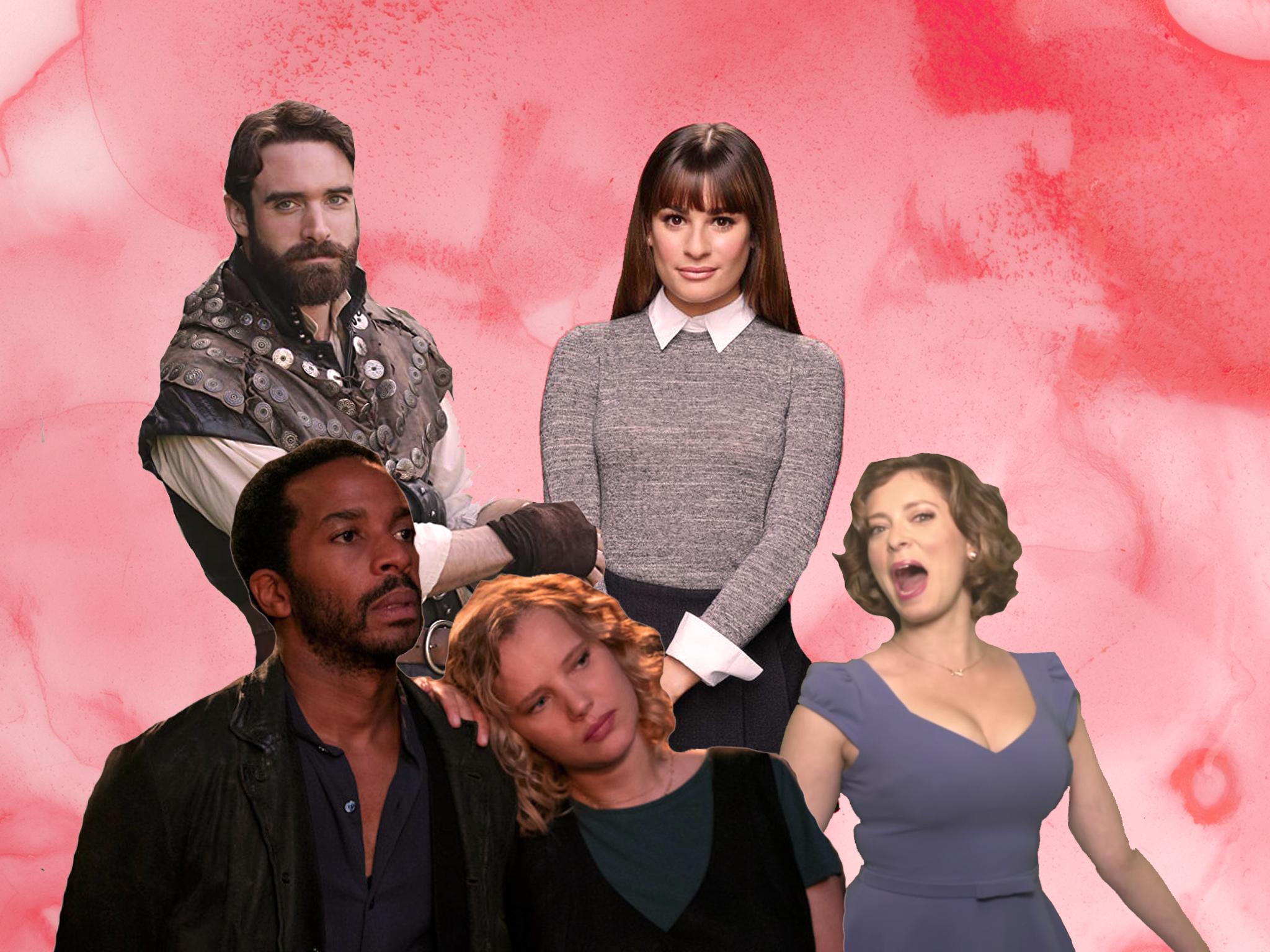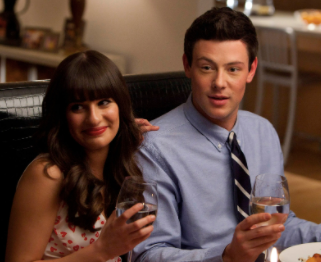From ‘Glee’ to ‘The Eddy’, why are TV musicals so few and far between?
In our current climate, we need the escapism of musicals more than ever, writes Isobel Lewis. So why haven’t television networks jumped on the bandwagon?


For as long as I can remember, movie musicals have had a magic effect on me. Calamity Jane, Grease, The Sound of Music – all of them have left me with the desire to live my life differently and the urge to burst into song. It’s taken until my mid-twenties to accept that my enthusiasm can’t quite make up for a poor vocal range and lack of rhythm, but that urge never goes away.
Musicals exist in a space that is totally separate from reality. In our current climate, that escape has never been more necessary – which perhaps explains the resurgence in film musicals. Whether stage adaptations (Steven Spielberg’s inevitably more successful forthcoming West Side Story remake) or originals (La La Land, The Greatest Showman), they’re basically a verified goldmine (unless it’s the disastrous 2019 adaptation of Cats).
So it’s somewhat surprising that television networks haven’t tried harder to emulate this success. We’re supposedly in the age of peak TV, with world-renowned actors and directors scrabbling to try their hand at it. And yet it’s taken until this week – with La La Land and Whiplash director Damien Chazelle launching The Eddy on Netflix – for someone to try and make a prestige musical TV show. What gives?
To get to the root of the genre’s problems, it’s probably best to look at the musical format itself. What I love best about musicals – the escapist fantasy they provide – is also the reason some people don’t enjoy them. In putting on a musical, you’re asking viewers to accept a world where people spontaneously burst into song and perform elaborate, synchronised dance routines seemingly without cue. Musicals require a sustained suspension of disbelief and an acceptance that the world before you could never quite exist in real life. Naturalism this is not.
This issue is only heightened in the TV format, due to the obvious, practical differences between one-off films and TV shows. If you’ve bought a ticket to see Mamma Mia in the cinema (as I did at least four times in the summer of 2008), chances are you’re prepared to suspend your disbelief and give yourself over to the musical silliness for the following 100 minutes (if only because you know it’s going to end soon).
But when it comes to television, where phones, food and housemates constantly remove you from the world of the TV show, that experience is completely different. Every time you return to the show, you have to accept the world in front of you all over again. Musical TV shows not only ask their viewers to suspend their disbelief for hours on end, but to keep that mindset going between episodes. There’s a reason why stage musicals use the first song back after an interval to reacclimatise the audience to the world they’ve taken a 15-minute break from. But TV musicals can’t do this between every episode and so the magic easily fades.
To try and combat this problem, the majority of previous TV musicals have attempted to soften the blow by setting their action in a musical-adjacent world and by featuring characters who are already performers. If singing and dancing is something that a character could already feasibly do in their daily lives or line of work, then the audience has less of a jump to make whenever they spontaneously burst into song.
Take Glee. It may now exist predominantly through memes about the implausible plots and the fact that teacher Will Schuester (Matthew Morrison) should have been locked up for crimes against rap (hard agree), but Glee made the TV musical work. For the musical theatre wannabes at William McKinley High School, the seemingly daily show choir meetings gave them an outlet for both their angst and their passion for jazz hands. Scored with popular hits rather than original songs – a technique popularised by writer Dennis Potter in his 1970s series The Singing Detective and Pennies from Heaven – the show had an immediate familiarity that helped people accept it.
Around the same time, NBC tried to recreate Glee’s magic in Smash, a more grown-up TV musical set around the cast of a fictional Broadway musical about the life of Marilyn Monroe. Sadly, Smash only ran for two seasons, but featuring characters who were musical stars helped the format make sense. Then we have the so-meta-it-hurts High School Musical: The Musical: The Series, Disney+’s musical mockumentary series about students at the school where the High School Musical franchise was filmed, who are staging the films as their own school musical. Confusing? Yes. Kind of brilliant? Also yes.

Watch Apple TV+ free for 7 day
New subscribers only. £9.99/mo. after free trial. Plan auto-renews until cancelled.
ADVERTISEMENT. If you sign up to this service we will earn commission. This revenue helps to fund journalism across The Independent.

Watch Apple TV+ free for 7 day
New subscribers only. £9.99/mo. after free trial. Plan auto-renews until cancelled.
ADVERTISEMENT. If you sign up to this service we will earn commission. This revenue helps to fund journalism across The Independent.

At this point, characters who are performers are so ubiquitous among TV musicals that they were even parodied by the brilliant Crazy Ex-Girlfriend. A comedy musical series written by and starring Rachel Bloom, who co-wrote the songs with Jack Dolgen and the late Fountains of Wayne musician Adam Schlesinger, the show attempted to challenge this narrative by centring around a character who can’t sing at all, but imagines her life through a series of original musical numbers, thanks in part to her undiagnosed borderline personality disorder. Because they’re a figment of her imagination, these songs don’t have to exist in the real world and can therefore extravagantly parody every genre from Springsteen and Oklahoma! to mid-Noughties pop-punk and Les Miserables. Just as unbelievable was another short-lived series, Galavant, which could also be completely unbelievable by being set in fantasy-inspired medieval times. The songs are campy and joyous because they’re not bound by a need to constantly justify their existence.
But as fun as these shows are, the future of the TV musical seems to look to make the genre, well, cool again. Gone is the try-hard nature: this new set is more chilled and less obvious in their music, despite clearly taking influence from their predecessors.
Where it would be easy to imagine The Eddy as “La La Land, but a TV show”, it’s more like its younger sibling. Like the film, it’s set in a musical-adjacent space, namely a jazz club in Paris. This is not the brightly lit, romantic vision of the French capital we’ve come to know, but a much darker version. Filmed on a handheld camera, the show feels gritty and realistic – and the same can be said for the music. The characters are nearly all musicians, from club owner Elliot (Moonlight’s Andre Holland) to Polish jazz singer Maja (Joanna Kulig), but the songs are their own character, too.
In the club, they perform to too-sparse audiences or improvised on piano, but their beauty can’t be contained in this context and has to burst out into the world of the show. They overflow onto the surrounding Parisian streets, with the characters scatting and humming in tune with the syncopated drumbeat of the backing track as they go about their lives. The music is always there; Maja even serenades her partner during a drunken hook-up.
The Eddy doesn’t need to justify its music, because, like jazz itself, it’s a primal, instinctive thing. Without the effort and jazz hands of the traditional musical, the show could easily convert even the biggest theatre sceptics to the genre. The TV musical can work after all.
Join our commenting forum
Join thought-provoking conversations, follow other Independent readers and see their replies
Comments
Bookmark popover
Removed from bookmarks